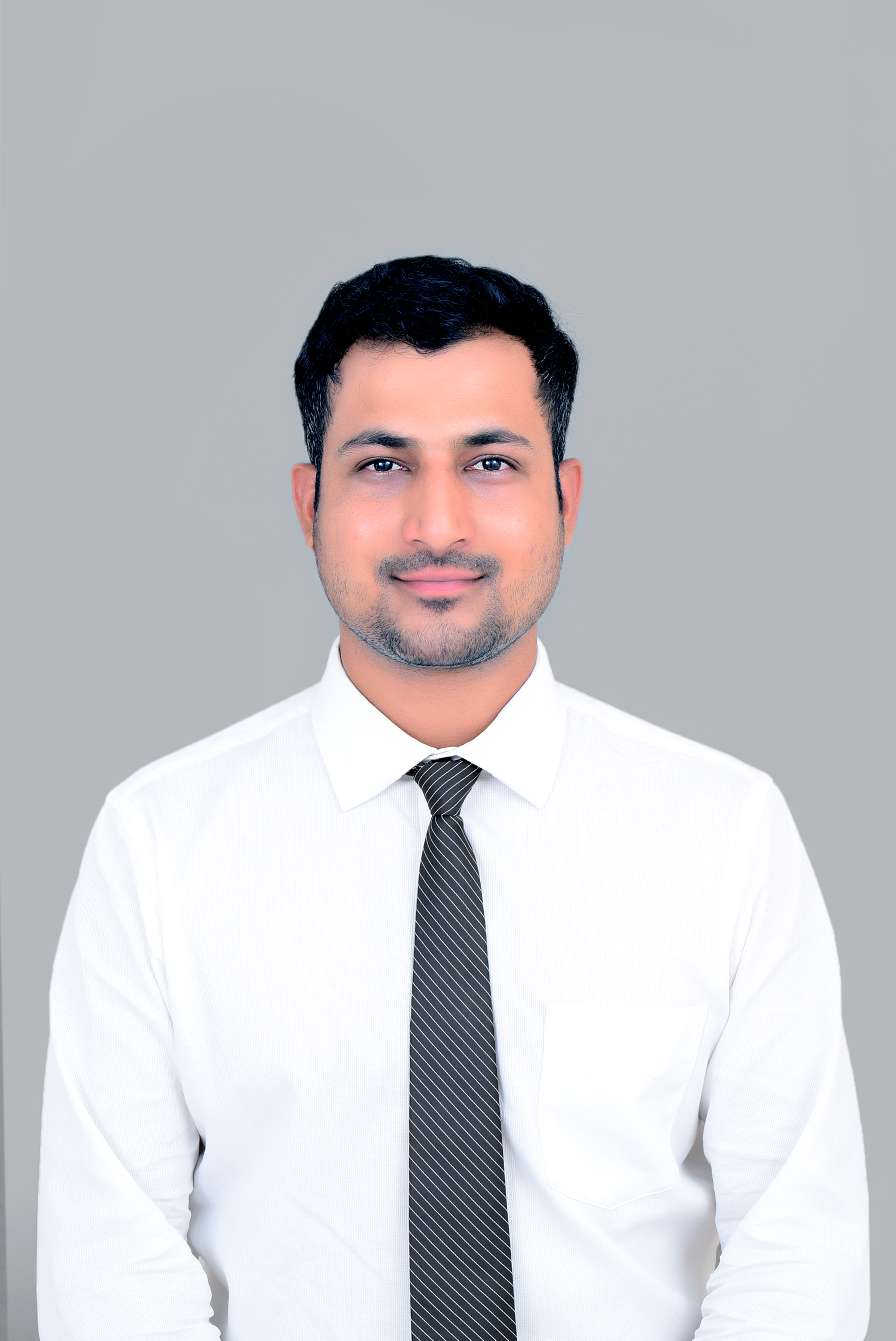4G(LTE) - Architecture, Features and Call Flow in Bangalore
RELATED RECENT PLACEMENTS
Anupama Yeragudipati
Kabira Mobility
Gurunanak Khalsa College


Arun Kumar
Riverstone
Anna University

Paul Willington
DGS Technical Services Pvt. Ltd.
SAVEETHA SCHOOL OF ENGINEERING ,CHENNAI

IVIN TROY
Kabira Mobility
College of Engineering and Management,Punnapra

Karuthapandi K
DGS Technical Services Pvt. Ltd.
S. Veerasamy Chettiar college of engineering and technology

Gowsikraj M
Hyundai Motor India Ltd
Sri krishna college of technology


Mujahidoddin Saudagar
Hyundai Motor India Ltd
G.H Raisoni college of engineering and management Amravati


Krutika Ravikumar
Genpact
R.V.College of Engineering
Syllabus
This course is full of best-in-class content by leading faculty and industry experts in the form of videos and projects
Course Overview
- The students will gain a thorough knowledge of the architecture and operation of the LTE System including the OFDM-based Radio Interface.
- During the coursework, the students will learn the following concepts:
- LTE Architecture, Features, Call Flows, Protocol Stack, and working scenarios with various Real-time Call Logs and Configurations.
- 3GPP Specifications for LTE by deep diving into the Function (and implementation) of each of the Network Nodes, Interfaces, and Procedures.
- VoLTE and Evolution of 5G
- The course will also give an overview of the software tools such as LTE-Sim and Wireshark, which are widely used in the industry.
- The students are exposed to the modern trends and standard practices being followed in the industry right now.
- This course forms the foundation for anyone wanting to become LTE RAN Developer, LTE Core Developer, LTE Feature Tester, UE Feature Development and Testing Engineer, Systems Engineer, and RF Engineer.
Course Syllabus in Bangalore
On a daily basis we talk to companies in the likes of Tata Elxsi and Mahindra to fine tune our curriculum.
Week 01 - Introduction to 4G systems, OSI layers, LTE call flows & Basics of C- Part 1
- Introduction to 3GPP & 4G subsystems
- 3GPP evolution & multiple access schemes
- OSI layers & networking protocol
- OSI layer introduction and corresponding protocols
- TCP vs UDP
- IP subnetting & routing
- IPv4/IPv6
Week 02 - Introduction to 4G systems, OSI layers, LTE call flows & Basics of C- Part 2
- LTE bands, architecture & Interfaces
- LTE frequency, bands, and bandwidth
- LTE architecture and interfaces
- LTE frame structures, resource block & bearers
- LTE Frame structure DL/UL(SFN, SF, slot)
- Resource block
- Bearers
- Quality of service
- LTE protocol stack & channel mapping
- LTE RAN protocol stack - Introduction and mapping
- LTE channels and mappings
- LTE initial synchronization
- Basic procedure: Cell search
- Synchronization procedures
- Synchronization signals - PSS, SSS
- Cell ID detection
Week 03 - Initial Access, Frames and MAC of LTE- Part 1
- LTE initial attach call flow
- LTE call flow - initial attach
- LTE PDCP
- LTE RLC
Week 04- Initial Access, Frames and MAC of LTE- Part 2
- LTE MAC
- MAC
- LTE PHY procedures
- LTE SRB & message mapping
- LTE SRB
- LTE messages & mappings with channel, PDCP/RLC/MAC involvement & SRBs
- SRB, DRB, ERAB ID mapping to LCID
- LTE RRC-NAS
- RRC/NAS
- RRC overview and state
- RRC Connection Re-Establishment
- NAS Procedures
Week 05 - RLC, RRC / NAS, PDSCH, PDCCH, HO & Advanced C- Part 1
- LTE Handover & Measurement events
- LTE RACH procedure
- LTE DCI
Week 06 - RLC, RRC / NAS, PDSCH, PDCCH, HO & Advanced C- Part 2
- LTE PDCCH
- PDCCH in detail
- Search space, blind decoding, PDCCH candidate
- LTE Resource Allocation
- PDSCH in detail
- Resource allocation
- LTE PUCCH
- PUCCH in detail
- UCI(SR, CQI, HARQ ACK/NACK)
- PHICH in detail
- HARQ process overview
- LTE MAC Scheduler
- Scheduler & Scheduling types
- Scheduling flows
- TB size & MCS calculation
Week 07 - RLC, RRC/NAS, PDSCH, PDCCH, HO & Advanced C- Part 3
- LTE EPC nodes & interfaces
- MME
- PGW
- SGW
- NAS
- S1AP
- HSS
- PCRF
- DIAMETER
- LTE DRX & paging
- LTE TAU & identifiers
- TAU in detail
- LTE IDs
- RNTIs
Week 08 - RLC, RRC/NAS, PDSCH, PDCCH, HO & Advanced C- Part 4
- LTE UE related MAC features
- BSR
- PHR
- Backoff indicator
- VoLTE overview : IMS, LTE_EPC and PCC nodes, interfaces and functions
- Typical VoLTE: Call flow establishment
- VoLTE Nodes
- IMS Core
- VoLTE Call Flow
- 4G vs 5G
- Evolution to 5G - comparison between 4G and 5G
- Numerology, Slot, SCS, Frame Structures, mmWave
- 4G vs 5G Part2
- SDAP
- Difference in MAC, RLC, PDCP
- 5G core reference architecture
- 5G core SBA
Our courses have been designed by industry experts to help students achieve their dream careers
Industry Projects in Bangalore
Our projects are designed by experts in the industry to reflect industry standards. By working through our projects, Learners will gain a practical understanding of what they will take on at a larger-scale in the industry. In total, there are 2 Projects that are available in this program.
Customization of LTE-Sim
Configuration of an LTE Network
Our courses have been designed by industry experts to help students achieve their dream careers
Ratings & Reviews by Learners
Skill-Lync has received honest feedback from our learners around the globe.

Flexible Pricing
Talk to our career counsellors to get flexible payment options.
INR 40,000
Inclusive of all charges
Become job ready with our comprehensive industry focused curriculum for freshers & early career professionals
1 Year Accessto Skill-Lync’s Learning Management System (LMS)
Personalized Pageto showcase Projects & Certifications
Live Individual & Group Sessionsto resolve queries, Discuss Progress and Study Plans.
Personalized & Hands-OnSupport over Mail, Telephone for Query Resolution & Overall Learner Progress.
Job-Oriented Industry Relevant Curriculumavailable at your fingertips curated by Global Industry Experts along with Live Sessions.
Instructors profiles
Our courses are designed by leading academicians and experienced industry professionals.

1 industry expert
Our instructors are industry experts along with a passion to teach.

10 years in the experience range
Instructors with 10 years extensive industry experience.

Areas of expertise
- Wireless Networking & Communication
Find 4G(LTE) - Architecture, Features and Call Flow in other cities
Pune
Delhi
Hyderabad
Mumbai
Chennai
Similar Courses
Got more questions?
Talk to our Team Directly
Please fill in your number & an expert from our team will call you shortly.
